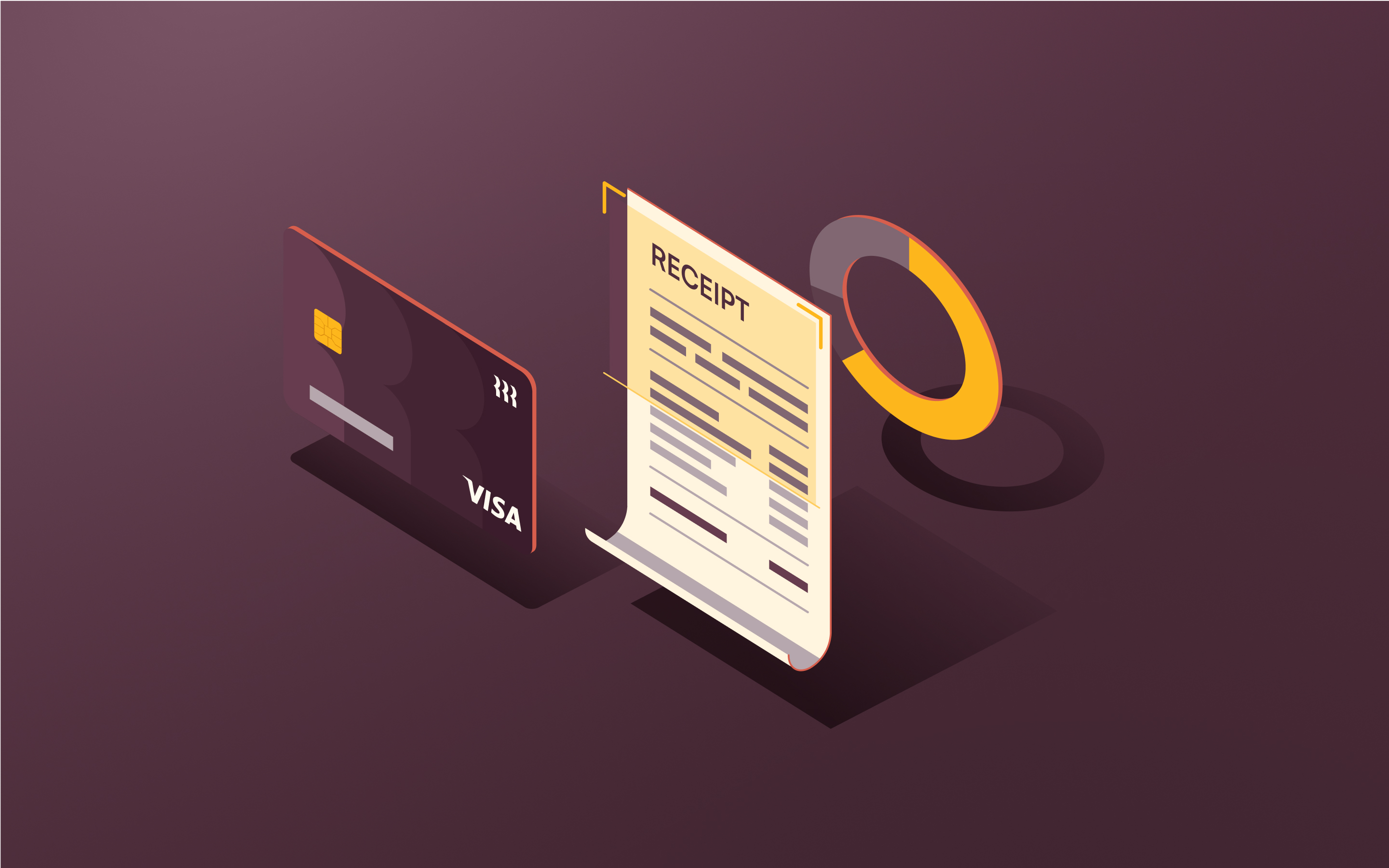Technology in financial services (fintech): 10 key emerging tools
Rapid technological advancements have transformed the financial services industry. This evolution, known as financial technology or fintech, revolutionizes how financial institutions operate and deliver customer services.
From streamlining operations to enhancing customer experiences, technology in financial services is reshaping banking, insurance, investments, and more.
In this post, we will explore fintech, unpack the benefits of fintech automation, and provide examples of emerging financial technologies.
What is financial technology (fintech)?
Financial technology, or fintech, refers to integrating technology into financial services to enhance usability, accessibility, and efficiency. While primarily used in backend systems of established financial institutions, such as banks, fintech has evolved to simplify individual and organizational financial management.
From automated investment platforms to mobile banking apps, fintech covers various financial sectors, including retail banking, investment management, education, and nonprofit organizations. Many fintech solutions also aim to make financial services more cost-effective and accessible.
6 benefits of fintech automation
Fintech innovation is transforming how financial services are delivered, helping companies and individuals streamline financial management. Here are the six key advantages of fintech automation driving this shift:
1. Enhanced data management and reporting
The digital transformation of the financial industry has made financial data more accessible. By leveraging AI and smart analytics, fintech allows financial institutions to collect, sort, and analyze consumer data more accurately and efficiently, leading to more informed decision-making.
At the same time, fintech automation allows consumers to access their bank accounts via smartphones, eliminating the need to visit a physical bank. Customers can check their balances or make transactions through a designated app or web platform from their chosen browser.
2. Automated tasks
Fintech solutions free finance professionals from tedious, repetitive tasks, allowing them to focus more on strategic activities. Automation accelerates processes like customer onboarding, transaction processing, and account reconciliation while minimizing or eliminating human error. Thanks to fintech, tasks that once took days or even months can now be finalized with just a few clicks.
3. Increased data security
Fintech automation enhances data security through advanced encryption, two-factor authentication, and strict compliance measures. These procedures protect sensitive financial data from cyber threats and unauthorized access.
Many fintech solutions incorporate real-time monitoring and fraud detector systems, helping them react promptly to suspicious activities.
4. Improved customer experience
By leveraging automation, fintech solutions help users access financial services anytime, anywhere. For instance, financial institutions are increasingly implementing artificial intelligence into their customer support service. AI-powered chatbots can give financial advice or process transactions in real time, enhancing the responsiveness and efficiency of customer support.
5. Financial inclusion
Fintech has the potential to expand access to financial services for underserved populations. Alternative credit scoring models, digital wallets, and mobile banking make it easier for individuals and small businesses to take part in the official financial system.
6. Streamlined expense management
Some fintech tools enable businesses to manage expenses more effectively through automated tracking and reporting features. These solutions simplify expense approval workflows and provide real-time visibility into spending patterns.
Financial technology also helps financial institutions (FIs) lower operational costs by reducing the need for physical infrastructure and automating processes. These savings can translate into reduced fees and better rates for customers.
Technology in financial services: 10 key tools
Below are ten fintech tools shaping the future of financial services.
1. Artificial intelligence (AI)
AI is transforming various aspects of financial services, from customer service chatbots to advanced fraud detection systems. Machine learning algorithms analyze big data to identify patterns, make predictions, and automate decision-making processes.
We are likely to see an increased use of AI in routine financial activities, such as loan approvals or insurance claims, which will minimize the need for human interactions—though this technology still requires extensive testing. Nevertheless, AI is here to stay, and those who embrace it will equip themselves with powerful tools that have the potential to enhance the customer experience.
2. Cloud computing
Cloud-based solutions provide financial institutions with scalable and cost-effective infrastructure to build and deploy new services. Cloud computing enables improved data storage, processing capabilities, and collaboration.
However, increased demand for cloud technology may drive service costs, posing challenges, especially to small businesses with limited budgets. Hiring external experts specializing in implementing or optimizing cloud solutions may be the answer to overcoming these obstacles.
3. Blockchain banking
Blockchain technology offers a secure and transparent way to record and verify financial transactions. Its decentralized nature has the potential to help with cross-border payments by eliminating the need for intermediaries and allowing fast and cost-effective peer-to-peer transactions. Also, once created in a blockchain ledger, data cannot be modified or deleted, which creates a secure base of user identities, enhancing the speed and accuracy of identity verification.
4. Banking of Things (BoT)
The Internet of Things (IoT) is evolving, extending to financial services in the form of Banking of Things (BoT), which is when wireless techs like Bluetooth and radio frequency are integrated with credit or debit cards to enable contactless transactions.
In addition to contactless payments via mobile phone, we are likely to see more financial service providers employ QR codes and NFT technology, which can help democratize financial services.
5. Insurtech
Insurtech applies tech to the insurance industry, streamlining processes such as underwriting, claims processing, and risk assessment. AI-powered algorithms and IoT devices enable more personalized and dynamic insurance products, making it easier to tailor policies based on individual behaviors and needs.
6. Robotic process automation (RPA)
RPA uses software robots to automate repetitive tasks in financial processes such as data entry, reconciliation, and compliance reporting. This technology improves accuracy and efficiency while reducing operational costs.
7. Expense management tools
Digital platforms for tracking and managing expenses help businesses streamline their operations by automating expense reporting processes. These tools also integrate with accounting systems, ensuring greater oversight and control over company spending.
8. Digital identity verification
Advanced identity verification technologies—including biometrics and document recognition—enhance security and simplify customer onboarding processes for financial institutions. These solutions accelerate fraud detection and ensure compliance with regulatory requirements.
9. Payment processing solutions
Innovative payment processing technologies enable faster transactions, whether in-person or online. By implementing these solutions, companies can enhance customer satisfaction and operational efficiency through the convenience and flexibility these tools offer.
10. Invoicing solutions
Automated invoicing tools help businesses manage their billing processes efficiently by generating invoices quickly based on predefined templates or recurring billing schedules. These tools also allow for easy tracking of payments received or outstanding invoices.
5 Examples of fintech
Here are five notable examples of fintech in action:
1. Robo-advisors
Automated investment platforms use algorithms to provide personalized investment advice and portfolio management. Robo-advisors like Betterment offer low-cost, accessible investment services to a broader range of consumers.
2. Payment apps
Mobile payment solutions such as Venmo, PayPal, and CashApp have revolutionized peer-to-peer transactions by making it easy for users to split bills or transfer money instantly among friends or colleagues.
3. Digital banking platforms
Neobanks like Chime offer fully online banking services with lower fees compared to traditional banks. Their mobile-first approach makes them ideal for customers who like to manage finances digitally. Features like easy money transfers and instant notifications highlight the flexibility of digital banking platforms, which are tailored to meet varied customer needs.
4. Regulatory Technology (RegTech)
RegTech uses technology to help businesses effectively comply with regulatory requirements. By automating the compliance process, RegTech reduces compliance costs, minimizes human error, and ensures companies adhere to changing regulations. As one of the most heavily regulated areas, the financial industry benefits from AI-powered monitoring systems, real-time analytics, and other RegTech solutions that help maintain compliance.
5. Invoice financing platforms
Services like Fundbox allow businesses to borrow against their unpaid invoices for immediate cash flow relief while waiting for clients' payments—a type of financing valuable during cash flow shortages.
Invoice financing platforms allow businesses to unlock the working capital in outstanding invoices to pay employees or cover operating expenses without waiting for the full payment cycle. These platforms usually require less paperwork, offer fast approval processes, and provide flexible repayment terms, making them a preferable alternative to traditional loans.
Fintech compliance
As innovative fintech services continue to emerge, regulatory compliance becomes a priority. In addition to adhering to existing regulations, companies must navigate challenges such as anti-money laundering (AML) and data privacy requirements.
Fintech is changing rapidly, and regulators are working on reshaping the respective legal frameworks. Staying current with regulatory changes is critical to avoid non-compliance while embracing new technologies can help improve overall user experience.
Key regulations include:
- General Data Protection Regulation (GDPR) for data privacy
- Anti-Money Laundering (AML) laws
- Know Your Customer (KYC) regulations
- Payment Card Industry Data Security Standard (PCI DSS) for secure payment processing
- Financial Industry Regulatory Authority (FINRA) rules for investment-related services
Compliance with these regulations is essential for maintaining trust among consumers while ensuring the financial system's stability.
Improve your financial management with Rippling
Financial management is critical for companies as it directly impacts their profitability and long-term viability in the market. However, in the absence of robust systems, companies could easily encounter challenges such as data inaccuracy, costly and time-intensive data processing, and compliance risks.
Rippling's spend management software consolidates all of your company’s finances—from payroll and benefits to corporate cards and expense management–giving you an up-to-date view of cash flow across your company. More importantly, it offers unprecedented control over spending patterns, allowing you to make more informed financial decisions.
Fintech FAQs
How does fintech support financial inclusion?
Fintech supports financial inclusion by providing accessible options for mobile banking apps and digital wallets. These apps help individuals without traditional bank accounts send and receive payments and manage their finances.
What are the risks associated with fintech?
While fintech offers numerous benefits, it also presents certain risks, including:
- Regulatory compliance challenges
- Potential exclusion of less tech-savvy individuals from accessing digital solutions
- Market volatility in certain areas
Addressing these risks requires ongoing collaboration between fintech companies alongside regulators, ensuring consumer protection remains paramount throughout this transition period.
Is fintech secure?
Financial tech companies prioritize security by employing advanced measures designed specifically for protecting user data alongside transactions; however, inherent risks still exist, primarily due to technological vulnerabilities present across all digital platforms today.
Users should be cautious when engaging online financially, ensuring that strong passwords remain intact and that best practices surrounding online security awareness remain consistent over time.
Streamline your financial management today
This blog is based on information available to Rippling as of October 18, 2024.
Disclaimer: Rippling and its affiliates do not provide tax, accounting, or legal advice. This material has been prepared for informational purposes only, and is not intended to provide or be relied on for tax, accounting, or legal advice. You should consult your own tax, accounting, and legal advisors before engaging in any related activities or transactions.











